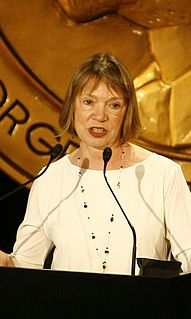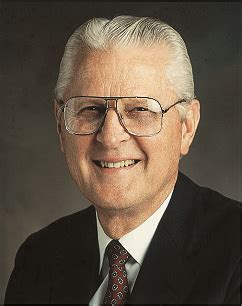A Quote by Joan Blades
The purpose of The Motherhood Manifesto is: mothers really need to be given the ability to parent.
Related Quotes
We're contemptuous of 'distracted' working mothers. We're contemptuous of 'selfish' rich mothers. We're contemptuous of mothers who have no choice but to work, but also of mothers who don't need to work and still fail to fulfill an impossible ideal of selfless motherhood. You don't have to look very hard to see the common denominator.
Given Freudian assumptions about the nature of children and the biological predestination of mothers, it is unthinkable for mothers voluntarily to leave their babies in others' care, without guilt about the baby's well-being and a sense of self-deprivation. Mothers need their babies for their own mental health, and babies need their mothers for their mental health--a reciprocal and symbiotic relationship.
Purpose needs to be nurtured. It gains resolve when faced with adversity. The ability to overcome obstacles and challenges is daunting but when accomplished gives us a great feeling of achievement. At the same time we need to nurture purpose by exposing ourselves to new opportunities. We need to learn continuously and we need to teach what we learn to others. Such things like that, and many more, help shape and develop the sense of a leader's purpose so that he or she can provide greater service to the organization.
We've never been in a time where mothers - parenthood, but particularly motherhood - is so fetishized. There's a whole industry around motherhood and mother-daughter bonds. And certainly when my mother was sick I found there was an incredible expectation for me to tell everybody how we were having this bonding experience and how healing it was.
President David O. McKay put it beautifully when he said, speaking of mothers, 'This ability and willingness properly to rear children, the gift to love, and eagerness, yes, longing to express it in soul development, make motherhood the noblest office or calling in the world. . .' (Gospel Ideals, Salt Lake City: Improvement Era, 1953, pp. 453-54).
The less obvious hurdle is that of preparing parents emotionally and putting forward realistic images of parenthood and motherhood. There also needs to be some sort of acknowledgement that not everyone should parent - when parenting is a given, it's not fully considered or thought out, and it gives way too easily to parental ambivalence and unhappiness.
Ideas about mothers have swung historically with the roles of women. When women were needed to work the fields or shops, experts claimed that children didn't need them much. Mothers, who might be too soft and sentimental, could even be bad for children's character development. But when men left home during the Industrial Revolution to work elsewhere, women were "needed" at home. The cult of domesticity and motherhood became a virtue that kept women in their place.
Leader and followers are both following the invisible leader - the common purpose. The best executives put this common purpose clearly before their group. While leadership depends on depth of conviction and the power coming therefrom there must also be the ability to share that conviction with others, the ability to make purpose articulate. And then that common purpose becomes the leader.

































